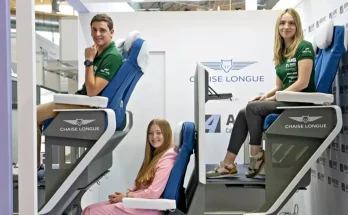
Cosmonaut Sergei Krikalev was on a year-long space mission when he received news from back home that the Soviet Union had dissolved.
Krikalev’s mission was originally planned to last five months, but the political upheaval back on Earth threw everything into chaos.
The Baikonur Cosmodrome and the planned landing site were now part of the newly independent Kazakhstan. During the political chaos, officials were left scrambling to figure out how to bring the cosmonaut home, or if he even could.
In a 2015 interview with the Guardian, Krikalev explained what his first emotion was when he finally touched down on solid ground.
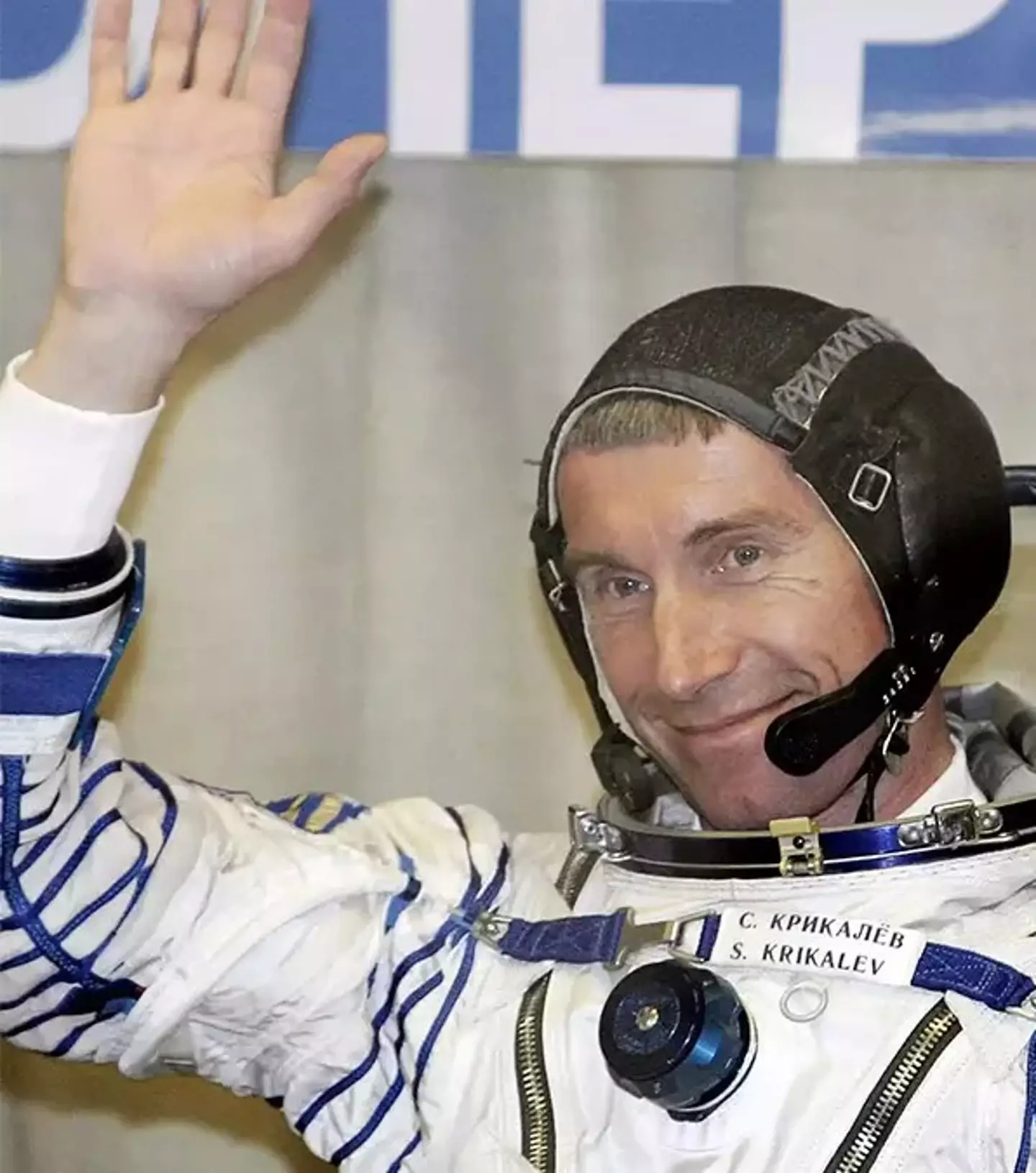
Krikalev was on a year-long space mission when he heard the news (MAXIM MARMUR/AFP via Getty Images)
“It was a long process and we were getting the news, not all at once, but we heard about the referendum, for example,” the cosmonaut described his experience.
“I was doing my job and was more worried about those on the ground – our families and friends – we had everything we needed!”
Krikalev went on to say: “I think I felt satisfaction that I had done my job, and done it well. The second one was a sort of relief as I had held a huge responsibility for many months.”
When Krikalev returned to Earth, the Soviet Union was gone and his home was no more. However, he became known as the ‘last Soviet citizen’ because of his unique situation.
Believe it or not, it wasn’t his final time in space.
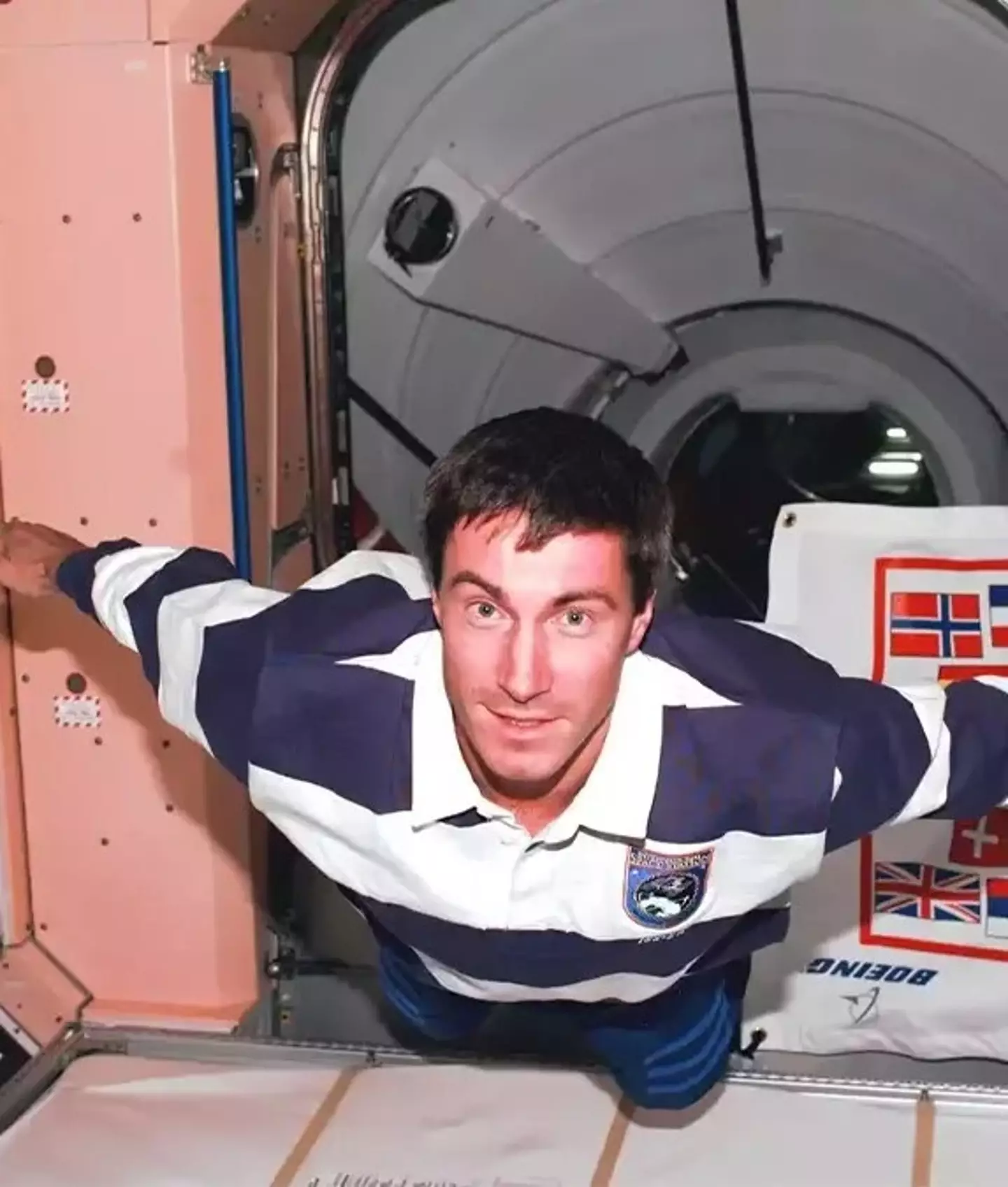
Krikalev returned to space after his first stint (NASA)
In 1994, he returned to orbit as part of the first joint US-Russian Space Shuttle Mission.
In December 1998, he also became the first person to enter the International Space Station along with NASA astronaut Robert Cabana.
Together, the pair were tasked with powering up the US module Unity.
Over his career, Krikalev spent a staggering 804 days, 9 hours, and 39 minutes in space – once holding the record for the most time spent off Earth.
But due to the amount of time Krikalev had spent in space, where he was travelling at high velocities, he also experienced time dilation.
This phenomenon is when time slows down at higher velocities, leading him to be 0.02 seconds younger than other people born at the same time as him.

Cosmonaut Sergei Krikalev spent nearly a year stuck in space after the Soviet Union dissolved during his mission.
What was due to be a five month trip doubled in length as people on the ground tried to work out how they were going to bring him back to Earth.
.webp)
The cosmonaut was trapped in space (MAXIM MARMUR/AFP via Getty Images)
This was partly due to the fact that the Baikonur Cosmodrome and the landing area were both located in the newly independent Kazakhstan.
This threw up huge uncertainty as to how or when Krikalev could return home.
Trapped aboard the Mir Space Station, he finally made his way back down to Earth in March 1992.
In 2015, the cosmonaut spoke to the Guardian, revealing what his first emotion was when he finally touched down on solid ground.
Talking about his experience of being stranded in space, he said: “It was a long process and we were getting the news, not all at once, but we heard about the referendum, for example.
“I was doing my job and was more worried about those on the ground – our families and friends – we had everything we needed!”
Krikalev went on to say: “I think I felt satisfaction that I had done my job, and done it well. The second one was a sort of relief as I had held a huge responsibility for many months.”
.webp)
Sergei Krikalev has spent a lot of time in space (NASA)
Because of this unique situation, Krikalev became known as the ‘last Soviet citizen’, but it wasn’t his final time in space.
In 1994, he returned to orbit as he took part in the first joint US and Russian Space Shuttle Mission.
In December 1998, he also became the first person to enter the International Space Station along with NASA astronaut Robert Cabana.
The pair were tasked with turning on the lights in the US module Unity.
The cosmonaut clocked up 804 days, nine hours and 39 minutes in space throughout his career, once holding the record for the most time spent floating above the atmosphere.
But because of the amount of time Krikalev had spent in space where he was traveling at high velocities, he also experienced time dilation.
This basically means a ‘slowing down of clocks’, causing him to be 0.02 seconds younger than other people born at the same time as him.
People have remained disgusted at the food offerings of astronauts since the first ever expedition into space, and while the ‘perfect meal’ doesn’t sound too bad by Earth standards, it’s not always what’s on the International Space Station (ISS) menu.
Things, at least from the outside, have looked quite bad for astronauts Barry “Butch” Wilmore and Sunita “Suni” Williams, as the pair have been stranded on the ISS since June in what was supposed to be just an eight-day trip.
A SpaceX Dragon craft is due to pick them up in February 2025, but many have commented on the pair’s weight, expressing particular concern over Suni Williams who has appeared to be rather gaunt in photos shared by NASA.
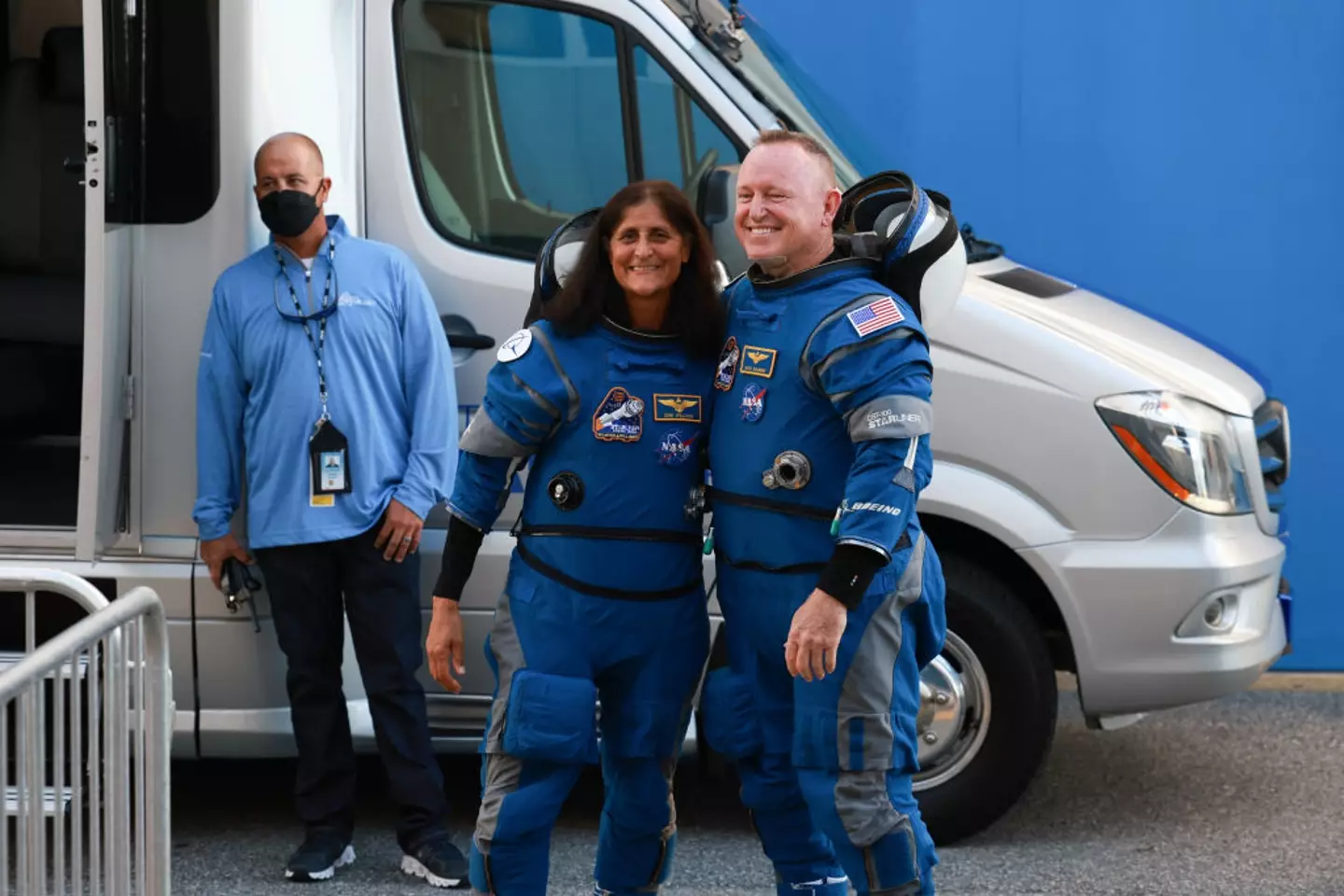
We’re not sure these astronauts knew they’d be eating their own pee pre-flight (Joe Raedle/Getty Images)
As if things couldn’t get any worse for the stranded duo, it has now been revealed that they have been resigned to a rather modest diet, including cereal, dehydrated casseroles, and freeze-dried soup – only the latter is made with their own urine.
Before you recoil in disgust, this is due to the recycling technology in the ISS that turns the sweat and urine of the astronauts into fresh water, ensuring that little is wasted.
When a stay in space gets extended by nearly a year you are bound to have to make some concessions, but I doubt many would imagine that this would involve eating your own recycled pee.
NASA have assured that, despite not being the most glamorous of meals, the food available to the astronauts remains rich with nutrition and enough to sustain the health of those on board the ISS.
Each astronaut is allocated around 3.8lbs of food every single day, with plenty of reserves stocked in case of delays like the one occurring right now.
Suni Williams has quelled any worries over her health thankfully, expressing: “There are some rumors around, outside there, that I’m losing weight and stuff. No I’m actually right at the same amount.”
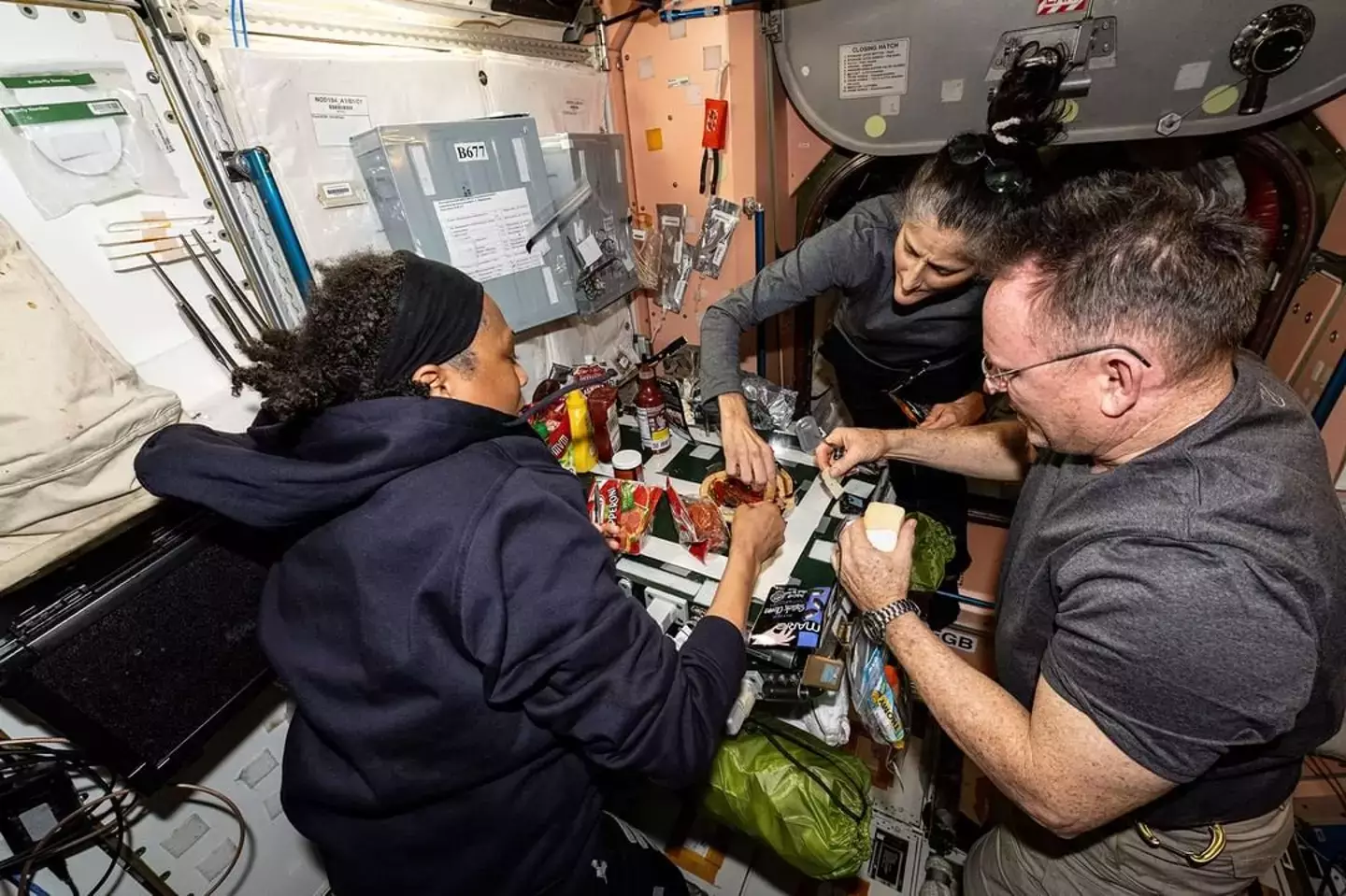
Wilmore and Williams have previously been seen eating pizza (@iss/Instagram)
Health experts have revealed that the likely cause of the worries is down to the calorie deficit that all astronauts will likely encounter, as you burn significantly higher amounts of calories while in space.
This affects women particularly more than men, which is why Williams appears to be more ‘unhealthy’ than her crewmate Wilmore, so it’s good to know that the pair are going to be alright.
It must be hard going from a diet of pizza to one mainly full of pee soup though, but you can’t ask for much better while stuck in space.

